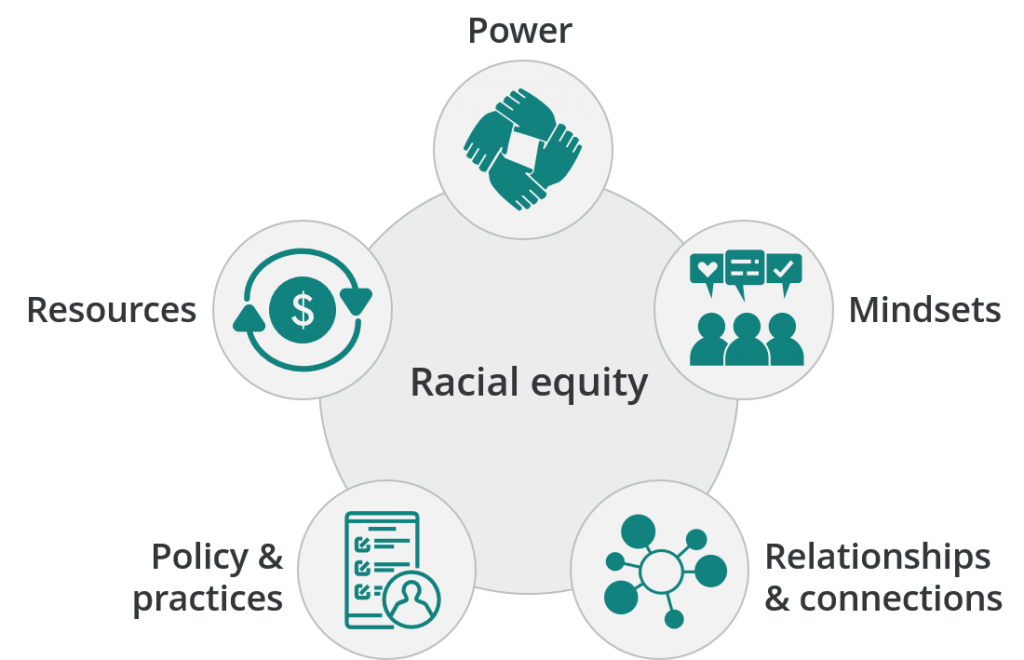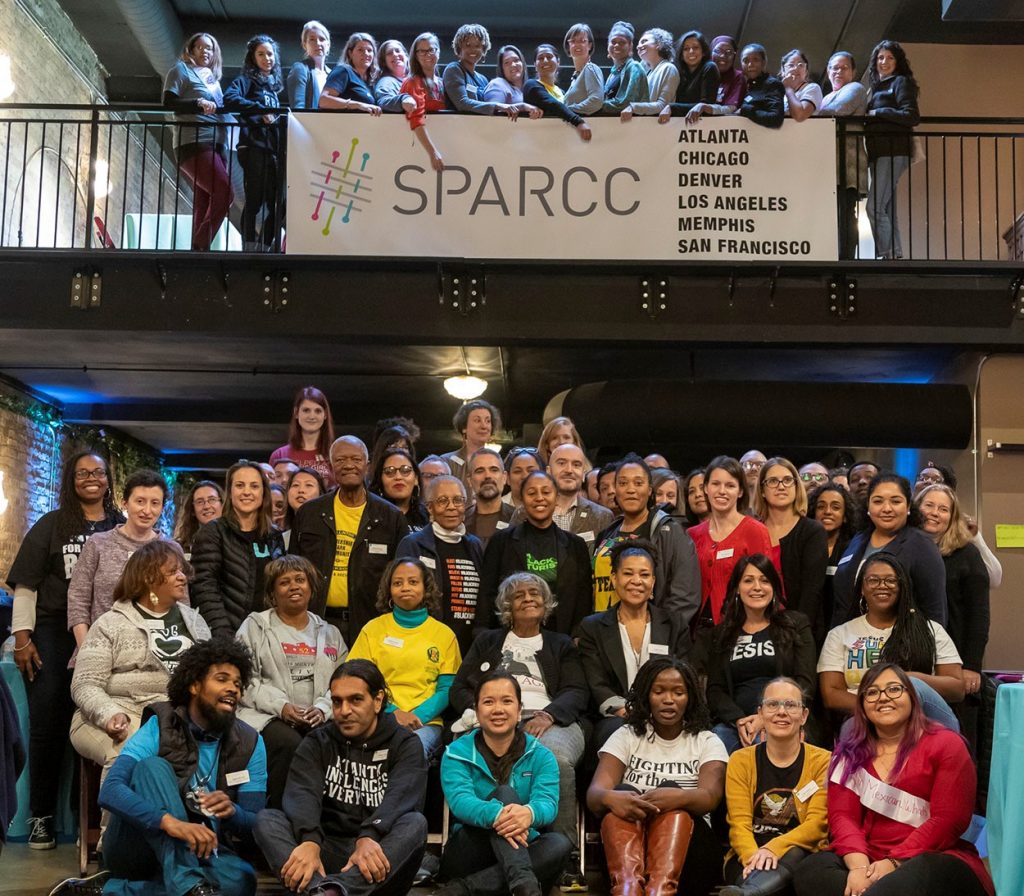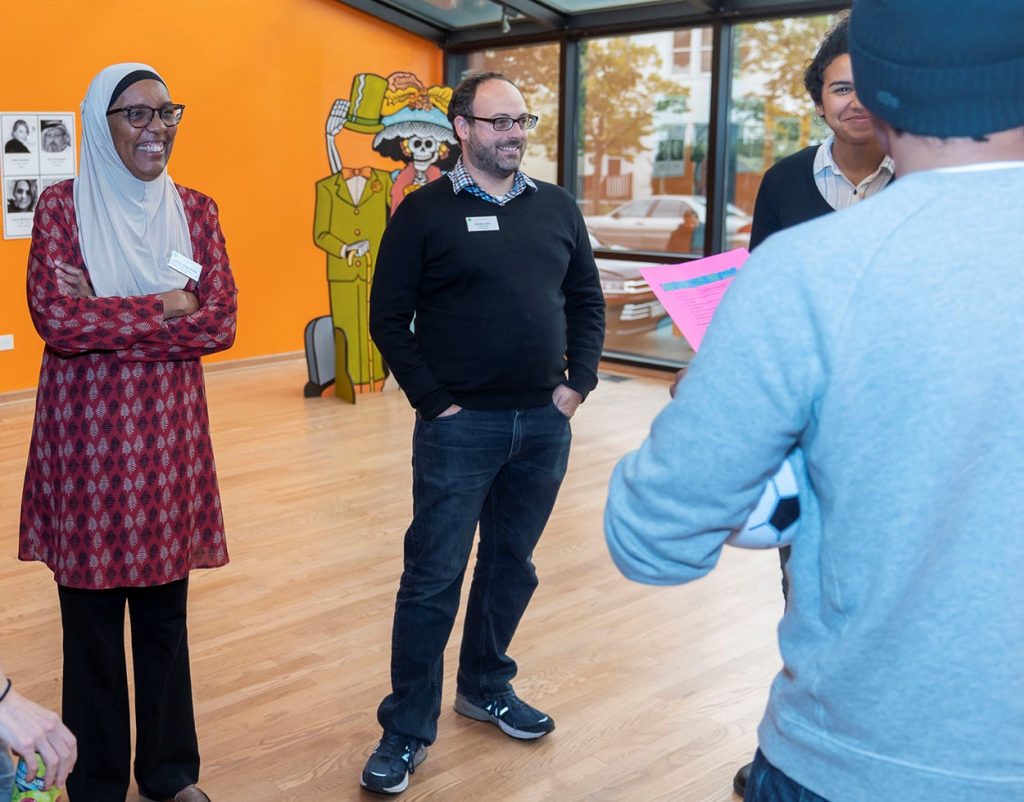Click here to download the full report.
Click here to download the executive summary.
Since its formation in 2017, the Strong, Prosperous, and Resilient Communities Challenge (SPARCC) has had an exacting goal – help shift decades of racially discriminatory policies and investments that have resulted in harmful disparities in health and climate resilience in communities throughout the United States.
SPARCC’s effort to address the barriers facing communities of color and low-income neighborhoods has meant advancing a community-driven development model, and after three years, we’ve learned some important lessons. These lessons feel even more important in light of the unfolding COVID-19 pandemic, which is disproportionately affecting communities of color.
SPARCC’s work takes place in six sites: Atlanta, the San Francisco Bay Area, Chicago, Denver, Los Angeles, and Memphis. Four national organizations provided support and funding through 2019, including Enterprise Community Partners (Enterprise), the Federal Reserve Bank of San Francisco (FRBSF), the Low Income Investment Fund (LIIF), and the Natural Resources Defense Council (NRDC).

The Center for Community Health and Evaluation (CCHE), SPARCC’s evaluation partner with funding from the Robert Wood Johnson Foundation, undertook the task of assessing the initiative’s first phase. It conducted analyses of extensive data on projects and outcomes, and interviewed SPARCC participants and partners at the local, regional and national levels.
It sought to answer the following:
- To what extent has SPARCC advanced changes in the systems that shape investments in neighborhoods, with the goal of racially equitable, healthy, and climate-resilient communities?
- What is driving or impeding SPARCC progress?
- What can be learned from SPARCC about promoting inclusive investment and integrated systems change?
The evaluation assessed systems change by looking at how SPARCC contributed to shifts in five conditions in the field of community development. (See figure Systems Change Framework, right).
All About Relationships: Collaboratives Built an Effective Foundation

SPARCC funded collaborative tables as a core element of its theory of change to formalize multi-sector relationships and facilitate collaboration, and the research showed that working with new partners across an expanded network has been one of SPARCC’s most valuable outcomes.
All sites developed new relationships and collaboration among partners who had never worked together, while approaches to collaboration varied.
Sites were responsive to their own contexts, and differed in the way they engaged membership, fostered community leadership, amplified community voices and made decisions. Most sites established or strengthened formal collaborative structures, while some established a network, or “table of tables,” bringing together several existing collaboratives under a more informal umbrella.
Multi-sector collaboration and leading adaptive work, the research found, takes significant skill, time, and resources. Sites that invested more time and effort in building their collaborative infrastructure saw more payoff in outcomes (i.e., community power and leadership, capital resource investment, and policy and practice change). Challenges included leadership turnover; integration of table members into a preexisting structure; and coalescing diverse organizations. Some sites encountered inherent challenges in SPARCC’s design as a regional initiative with local focus areas.
“The kind of work they put in so far in devising a structure for this table is the first type of effort that looks like that in the area [North Memphis]. They are thinking about how to include people from community who are affected by policies, and who don’t traditionally have a seat at the table.”
-Memphis Institutional Partner
Shifting Power and Mindsets in Community Development
Mindsets: leading with racial equity
The SPARCC initiative strengthened its emphasis on racial equity over time, which brought energy, momentum, new ways of working, and new partners to the collaboratives. A focus on racial equity has also given cover and credibility to anti-racism work within local power centers and pushed constructive dialogue.
“SPARCC has helped us grow and incorporate new lenses of climate and health and allowed us to lead with racial equity. We always had equity in ‘e’TOD but people didn’t want to hear about it. SPARCC gave us power and permission and stability to lead with racial equity.”
– Atlanta table member
Community power drives change
Supporting and harnessing community leadership and power is also core to SPARCC’s model.Tables created new processes for obtaining community input, provided resources for community power building, and added capacity to engage in capital and policy work. Community leadership and power also drove capital investments and started to shift the community development paradigm in some places.
When Google bought public land near a transit station in the Bay Area, the local SPARCC table brought its influence, securing seats for residents on a steering committee and bringing research on local rent impacts. These and related grassroots advocacy efforts pushed Google to commit to $1 billion in housing investments (5,000 affordable homes), including affordable housing benefits in the public land it bought, and to establishing a $250 million investment fund to support affordable housing.
Resources: Financial support for built environment projects
SPARCC disbursed over $3.4 million across 25 capital projects (including one loan) to historically disinvested communities, and the result has had positive benefits. Capital work was supported by having a champion with capital expertise, having potential borrowers connected to the table, and developing a pipeline of projects in alignment with communities’ priorities.Using SPARCC debt to finance projects at sites took longer than anticipated, partly due to ongoing tension between projects that are feasible to finance with SPARCC debt resources and communities’ own priorities. The SPARCC national team began adapting its support and resources accordingly.
In Denver, the Accessory Dwelling Unit (ADU) Pilot Program provides moderate and low-income families the opportunity to build wealth by renting out secondary structures built in their backyards. This program addresses equity within economic opportunity and mitigates displacement by offering affordable housing. This program was made possible through a $250,000
Policy & practices: Shifting how development happens
Sites reported a tension between working at the regional level while trying to mobilize and build community power and often found it important to do the local work first. At the same time, sites were able to strengthen their positions as regional actors to help stop displacement. A focus on regional agencies like transit proved impactful.
In Chicago, Elevated Chicago’s recommendations on eTOD were influential to the City’s process in amending and updating its TOD ordinance. The City’s eTOD amendment includes strategies aimed at avoiding displacement of residences and businesses, reinvesting in low-income communities and communities of color, supporting equitable transit investment, and ensuring appropriate density levels and parking aligned with neighborhood needs.
At the national level, some of the most promising outcomes to-date may be changes within the national implementing organizations. This included explicitly naming “racial equity” as an outcome goal in strategic plans and processes, providing anti-racist and anti-bias trainings, and embedding the SPARCC frame of racial equity, health, and climate resilience into long-term work.

The Next Phase
SPARCC is elevating gaps and opportunities in the field of community development, bringing new partners together, influencing local policy, raising issues of race in local power centers, and changing mindsets. Equally important, SPARCC values have influenced the national implementing organizations in how they prioritize and advance racial equity internally and externally in their work. SPARCC has received funding for a second phase in which it will continue to hone its unique model for philanthropic community development.
“We have to do a better job building political will to make change [between mayor, city council and board of supervisors]. It’s building those alliances and educating folks. It’s a critical time to get in there and build support for more equitable solutions, not just geographic equity but social and racial equity.”
–LA Table Member